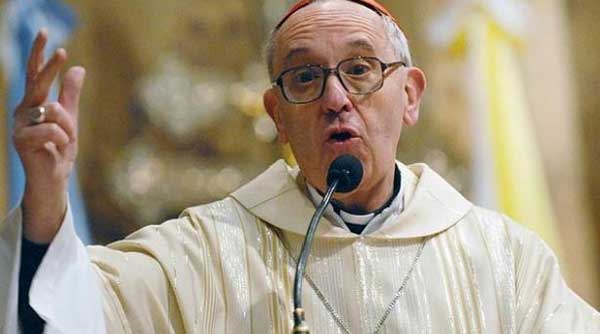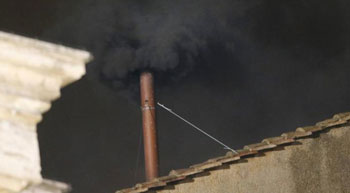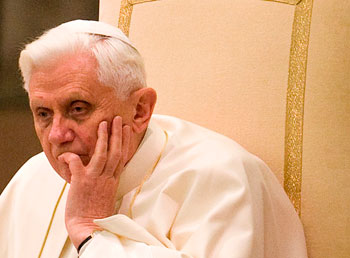Jesuit Jorge Mario Bergoglio is the new Pope
The Jesuit Jorge Mario Bergoglio from Argentina is the new Pope of the Roman Catholic Church. Francis I. is the first Jesuit in the papal office and also the first non-European.
The Roman Catholic Church experienced a double premiere: for the first time in history there is a Pope who comes from South America. And for the first time a member of the Jesuit order holds the highest ecclesiastical Office. The Argentinian Jorge Mario Bergoglio was elected Pope on Wednesday evening in the fifth round of votes. Until now, the 76-year-old had been the Archbishop of Buenos Aires. Bergoglio’s name as Pope is Francesco (Francis), he is the first Pope who has chosen this name.

Supposedly second in 2005
Bergoglio is a surprise for most Vatican experts, although he had, according to a “diary” which in 2005 had been smuggled out of the Conclave by one of the Cardinals, received the second most votes after Joseph Ratzinger. His withdrawal paved the way for the later Pope Benedict XVI., the document says.
Like many of his compatriots, the new Pope holds both the Argentine and the Italian citizenship and speaks Spanish and Italian, additionally some German due to a sojourn in Germany, were he wrote his doctoral thesis in 1985. The graduate chemist is regarded a multi-talent – good cook, opera lover, friend of the Greek classic, Shakespeare and Dostoevsky, good swimmer and strong, although he is struggling with lung problems since his childhood.
Bergoglio is considered a modest, down-to-earth and ecologically-minded person. As the “Cardinal of the poor”, he uses mostly public transportation and waived episcopal splendor. He confirmed this impression in his first appearance on the balcony of the St. Peter’s Basilica.


